Forever Chemicals
The Growing Challenge in Water Filtration and How to Combat It
11/12/20242 min read


Per- and polyfluoroalkyl substances (PFAS), commonly referred to as "forever chemicals," have become one of the most significant challenges in water quality management. Known for their persistence in the environment and potential health risks, these chemicals are raising global concern. Addressing PFAS contamination requires advanced filtration solutions and proactive strategies. This blog will explore the growing challenge of forever chemicals and how innovative water filtration technologies can help combat their impact.
What Are Forever Chemicals?
PFAS are a group of synthetic chemicals widely used since the 1940s in industrial processes and consumer products for their heat resistance, water repellency, and non-stick properties. They can be found in items such as:
Non-stick cookware
Water-repellent fabrics
Food packaging
Firefighting foams
Despite their widespread use, PFAS are highly problematic because they do not break down in the environment, accumulating in water sources and the human body over time. Studies have linked exposure to PFAS with serious health issues, including cancer, liver damage, immune system suppression, and developmental effects in children.
The Growing Scale of the Problem
PFAS contamination has been detected in water sources around the world. The problem is particularly acute near industrial sites, military bases, and areas where firefighting foam has been used. Regulatory bodies are now imposing stricter limits on acceptable PFAS levels in drinking water. However, many existing water treatment systems were not designed to handle these persistent contaminants.
Filtration Solutions for PFAS Removal
Combatting PFAS contamination requires advanced filtration technologies capable of capturing and removing these difficult-to-treat compounds. Here are some of the most effective methods:
1. Granular Activated Carbon (GAC)
GAC filtration is one of the most widely used solutions for PFAS removal. Activated carbon effectively adsorbs PFAS from water, particularly long-chain compounds like PFOA and PFOS. Regular monitoring and media replacement are essential to maintain performance.
2. Ion Exchange Resins
Ion exchange resins are highly effective in removing short-chain PFAS compounds, which are more challenging to capture with traditional carbon filters. This technology provides an excellent complement to GAC systems in achieving comprehensive PFAS removal.
3. Reverse Osmosis (RO)
Reverse osmosis is one of the most reliable methods for removing a broad spectrum of contaminants, including PFAS. RO membranes act as a physical barrier, preventing even the smallest particles and molecules from passing through. RO is widely used in residential, commercial, and industrial applications.
4. Advanced Oxidation Processes (AOPs)
Emerging technologies such as advanced oxidation processes can break down PFAS molecules, reducing their concentration and toxicity. While still under development, AOPs offer significant promise as part of future water treatment solutions.
Building a Multi-Barrier Approach
A single filtration method is often insufficient to fully address PFAS contamination. A multi-barrier approach, combining several treatment technologies, provides the most effective and reliable results. This layered strategy enhances overall system performance and ensures compliance with tightening regulatory standards.
The Role of Next-Gen Filtration Components
Next-generation filtration components are critical in the fight against forever chemicals. Innovations in filter media and membrane technology improve efficiency, reduce maintenance requirements, and enhance PFAS removal. At Helix Filtration, we are committed to staying at the forefront of these advancements, delivering solutions that meet the most demanding water treatment challenges.
Protecting Public Health and the Environment
Reducing PFAS contamination is not just about meeting regulatory requirements—it’s about protecting public health and safeguarding our environment for future generations. Advanced filtration systems are an essential part of this effort, enabling industries and communities to minimise their impact and ensure access to safe, clean water.
The challenge of forever chemicals is a growing concern, but it is not insurmountable. With the right combination of filtration technologies and a proactive approach, we can reduce PFAS contamination and protect water resources.
HELIX create innovative, sustainable water products for residential, commercial, and industrial sectors, helping communities thrive while safeguarding the future of our planet.
© 2025 HELIX® Filtration. All rights reserved.


